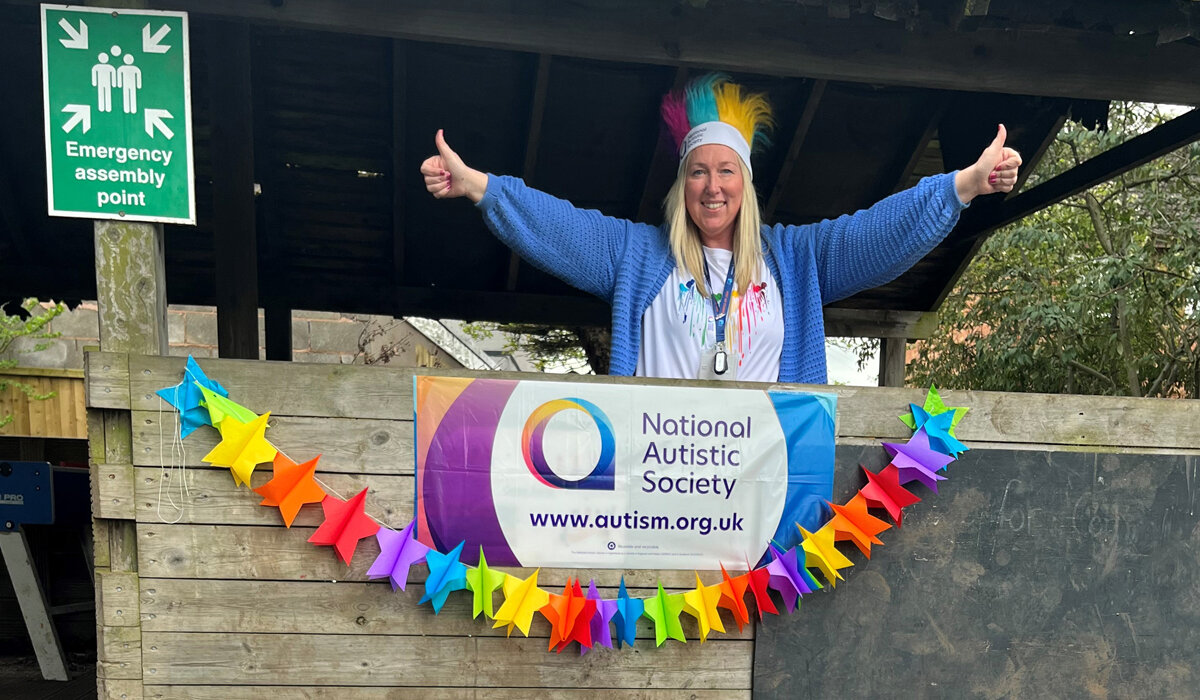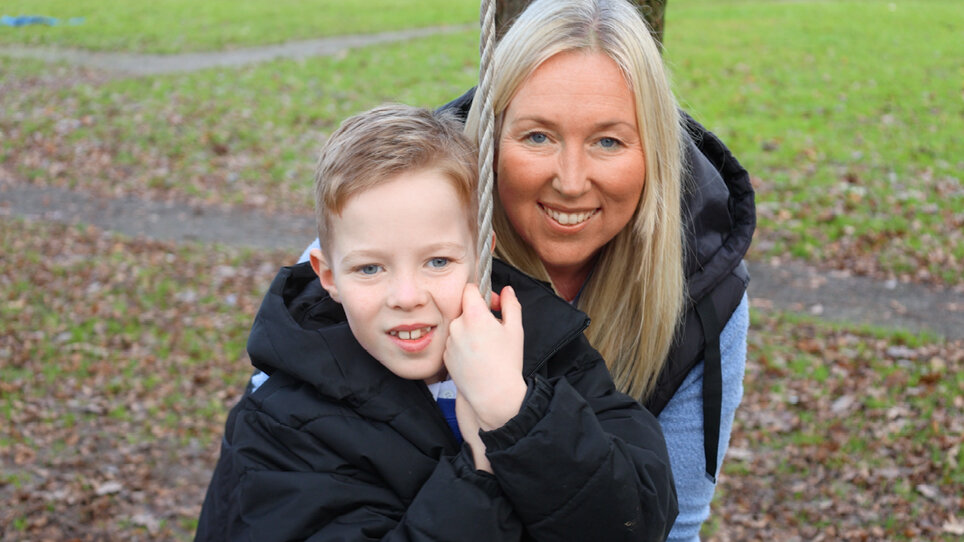
“If more schools got involved and did something to make children say ‘it’s okay to be different’, that would be a start.”
Beth
– on celebrating autism acceptance in schools
SEN teaching assistant Beth helped her school celebrate World Autism Acceptance Month in 2025 and World Autism Acceptance Week in 2024. We talked to her about what her school did to celebrate and her advice for other schools looking to do the same.
Hi Beth! What did you do to celebrate autism acceptance?
At our school, Oasis Academy Warndon, we did a sweet sale and a raffle. The whole school also dressed in rainbow-spectrum-themed colours, so it was a whole day of rainbow fun!
We also made a presentation so the children learned what autism means in class, and it really established that it was okay to be different.
It started off a lot of conversations between children who perhaps didn’t know that their school friend was autistic, so it broke down some barriers.
Lots of things came out that the children didn’t know.
Why did you decide to take part?
Well, I am a member of the National Autistic Society already. My son was diagnosed when he was five, and I’ve been on this journey of learning as I’ve gone along.
As I’ve learned more, I’ve wanted to help more.
We did a Spectrum Colour Walk a few years ago and loved doing that as a family.
But last year, when I got Your Autism magazine, which I get quarterly, the World Autism Acceptance Week celebration ideas were on there. I thought: ‘What could I do that would have a bigger impact and bring more awareness?’
Why is autism acceptance so important?
I think that the more people understand autism and break down barriers to talk openly about people’s experiences – so it’s not a taboo subject – the more included autistic children will feel, making a difference for everyone.
If you think someone’s different, it can be a little intimidating because you sometimes don’t know the right thing to do. So, you may just avoid them, which we don’t want because then that child can become isolated.
We want it to make it more accepted to be autistic and do things differently.
And get more people asking: “What do I need to do to help you?”
But equally, if that child decides they don’t want to talk about it, then that’s absolutely fine, too.
Why do you think it’s important for teachers and schools to understand autism?
Knowledge is power, isn’t it?
The more it’s coming into the schools, the more you learn and can help.
And if you can get people to be in a safer environment to be themselves, I think it helps stop the dysregulation and upset that young autistic people can experience.

My son’s in a mainstream school at the moment, and I just want him to fit in and be as happy and comfortable as he can be. Even though I know he’s different and he knows he’s different, I still want everybody else to treat him the same.
Yes, we’re all different. We all can and can’t do different things, but we’re all the same – that should be the main focus.
Do you have any tips for people thinking about doing a fundraising event at their school?
What I did was first thought of a plan and got some ideas together.
The rainbow theme was in the magazine, so straight away, I thought, ‘Right, we’ll do dressing up and bring 50p or whatever you can afford to donate in a bucket.’ So that was one way.
And then I contacted some local shops to see if we could get any donations of either cakes or sweets, whichever we can get, and do a sale to put more money in the bucket.
I also decided to go to the local toy shop and see if they could donate some toys and sell raffle tickets as well.
I did all three things.
Our speech and language higher level teaching assistant also did a voiceover on a video we put together from YouTube in a way that would grab the children’s attention.
We made a version for the younger end of the school and then a more grown-up version to make it age-appropriate for each group. And we paused the video to have those open conversations.
We raised £335 in total, and it was a good success.
What is one thing you would like more people to understand about autism?
That’s a tricky one because there are lots of things.
But for me, it’s that it’s okay to talk about it.
I don’t mind people asking me questions, especially from a parent’s point of view. I know not everybody does.
I think it needs to be more ‘it’s okay to ask’, and it’s okay not to understand and not be frightened to ask. I would rather someone ask me if there’s something they can do rather than stare and make me feel uncomfortable.
What does autism acceptance mean to you?
Everything. I want the world to be a better place for everyone.
We’re all human. We’ve all got feelings. We’re still important, whether we’re autistic or we’re not.
It’s so important to respect other’s thoughts and feelings, regardless of their religion, race or disabilities. It all goes hand in hand.
Just be kind.
Is there anything else you would like to share from your personal experiences or work?
If more schools got involved and did something to make children say ‘it’s okay to be different’, that would be a start.
I think schools are the key to making these changes because children should start off young to understand that it’s okay and to understand what things mean.
I’m also part of the Oasis Community Hub, which is attached to our school and helps our local community hugely. I’m a hub council member and volunteer, and I’ve run a SEN parent coffee morning for over a year called ‘Walk in Wednesday’.
I managed to get help and support from some of the hub staff and volunteers, who helped with the sweet sale and selling raffle tickets. So often, there are volunteers and parents who would be happy to be involved too.
And for the adults working with children, if they’re clued up, ready to make those conversations okay and make it a nice environment in which they find it acceptable to have those conversations, you’re breaking barriers down all the time. It will get so much easier for everybody.
